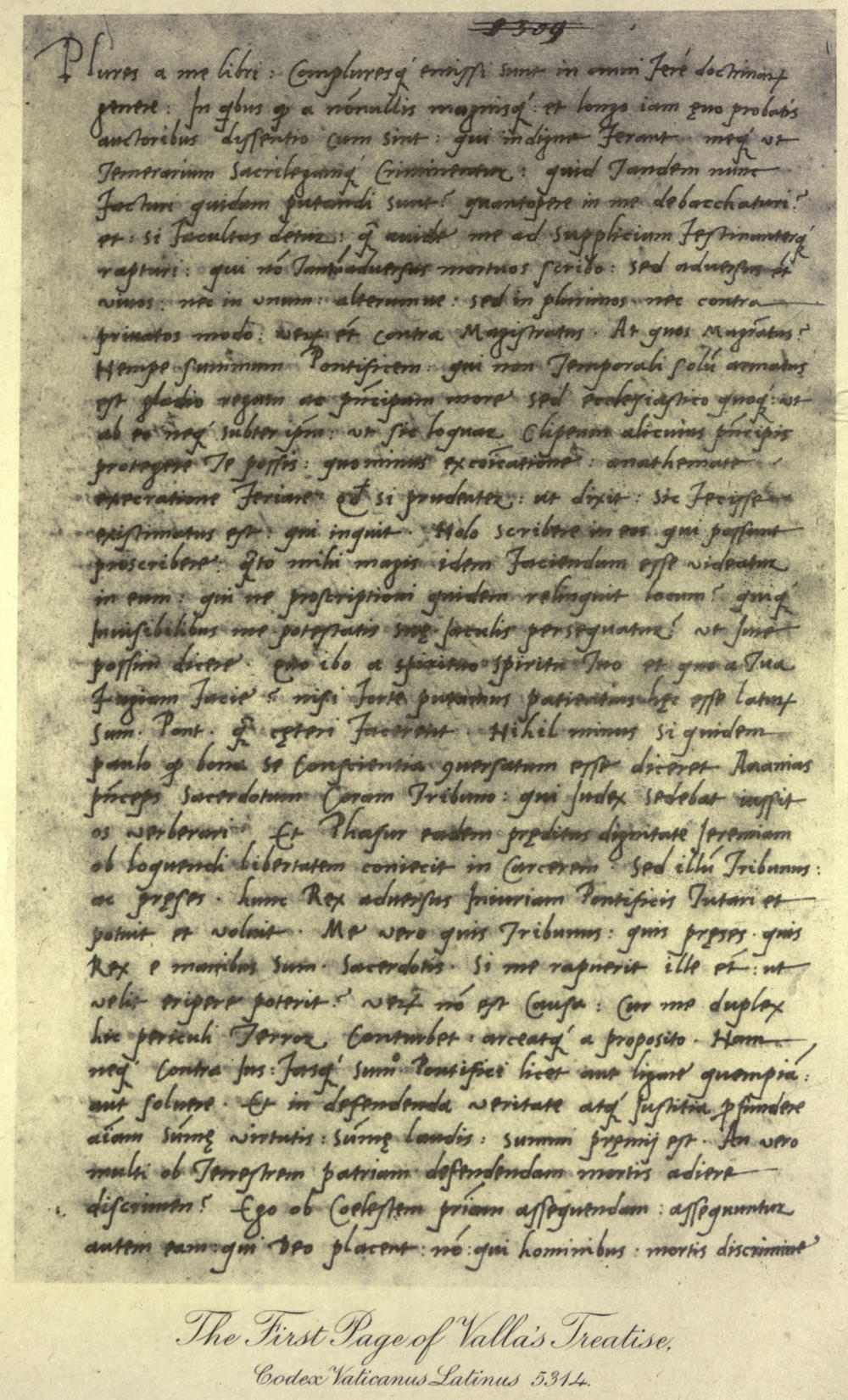THE TREATISE OF
LORENZO VALLA ON THE
DONATION OF CONSTANTINE

The First Page of Valla’s Treatise,
Codex Vaticanus Latinus 5314.
THE TREATISE OF
LORENZO VALLA ON THE
DONATION OF CONSTANTINE
TEXT AND TRANSLATION
INTO ENGLISH

CHRISTOPHER B. COLEMAN, Ph.D.
PROFESSOR OF HISTORY IN ALLEGHENY COLLEGE

NEW HAVEN
YALE UNIVERSITY PRESS
LONDON · HUMPHREY MILFORD · OXFORD UNIVERSITY PRESS
M.D.CCCC.XXII
COPYRIGHT, 1922, BY
YALE UNIVERSITY PRESS
The Donation of Constantine—the most famous forgeryin European history; papal authority—since the triumphof Christianity the most perennial question of Europeansociety; historical criticism—one of the most comprehensive, mostalluring, and most baffling enterprises of the modern mind;Lorenzo Valla—the greatest of the professional Italian humanists;these lines of study have converged, accidentally perhaps, tocall forth the following pages. Much of the subject matter whichmight properly form their introduction I have already treatedmore fully in an earlier work,[1] and a brief statement will sufficehere.
The Donation of Constantine (Constitutum Constantini),written probably not long after the middle of the eighth century,became widely known through its incorporation in the Pseudo-IsidorianDecretals (about 847-853). Parts of it were included inmost of the medieval collections of canon law; Anselm’s, Deusdedit’s,and Gratian’s great work (the Decretum, or Concordiadiscordantium canonum). It purports to reproduce a legal documentin which the Emperor Constantine the Great, reciting hisbaptism and the cure of his leprosy at the hands of Sylvester,Bishop of Rome 314-336, confirmed the privilege of that pontiffas head of all the clergy and supreme over the other four patriarchates;conferred upon him extensive imperial property in variousparts of the world, especially the imperial Lateran palace, and theimperial diadem and tiara, and other imperial insignia; grantedthe Roman clergy the rank of the highest Roman orders and their[2]privileges; gave Sylvester and his successors freedom in consecratingmen for certain orders of the clergy; it tells how he, Constantine,recognized the superior dignity of the Pope by holdingthe bridle of his horse; grants Sylvester Rome, all of Italy, andthe western provinces, to remain forever under the control of theRoman See; and states his own determination to retire to Byzantiumin order that the presence of an earthly emperor may notembarrass ecclesiastical authority. This rema